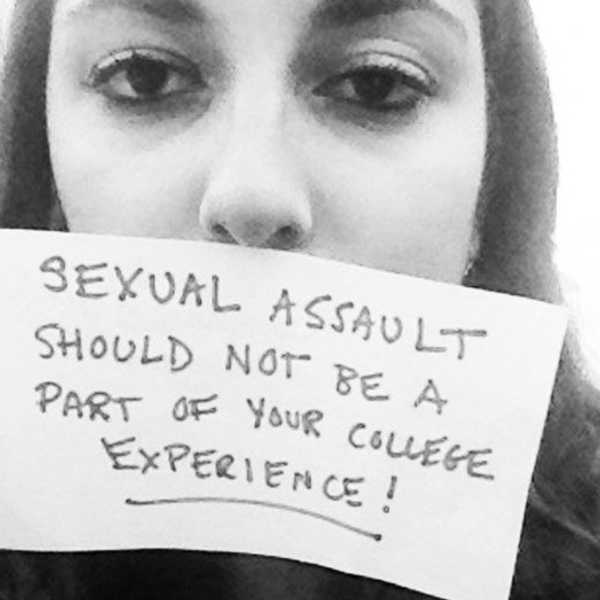Things that every freshman has to worry about going into their first semester: will they like their roommate, how much does the dinning hall food suck, how hard will it be to make friends like the ones they just left and will they be a victim of sexual assault?
Campus is supposed to be the safe zone, the bubble that college students live in that protects them from the real world, but sexual assault is drastically more apparent on any campus than city in the United States. Your natural instinct would tell you that the stranger walking 15 feet behind you down a dark street at night is a bigger threat than the guy who lives down the hall who seems just a little bit too smooth. The fact, however, is that 90 percent of victims of sexual assault on college campuses knew their attacker.
This past semester my campus was fortunate enough to have a showing of the film "The Hunting Ground." This documentary begins to dig at the issue of sexual assault on college campuses and the gross violation of moral and even legal standards that colleges will go to in order to protect themselves before ensuring the safety of the victims of sexual assault. I walked back to my room alone, counting each step it took and shivering at each noise I heard. I had spent months on a campus I was now terrified to be alone on.
If one in four students on a campus was getting struck by lightning, mauled by a bear or hit by a car there would be massive reforms in a matter of just a few months if not weeks; but after decades of a persevering problem there has been very little action to cull the epidemic. A university would condemn the drivers, keep the bears away and tell students to stay indoors during lightening storms. However, in the case of sexual assault, leaders within universities have suggested that victims think about how their reporting may affect their attacker, and they discourage official police reports. Instead of stopping the problem at its source, universities have chosen to act as if there is no problem.
We are, now, at the precipice. If we continue to encourage victims to speak out and continue to shut down those who blame a victim for their outfit choice or the amount that they drank that night, there is a better future. But if we choose to be silent and allow those found guilty of sexual assault back onto the same campus after a semester suspension, we are hindering the progress that has already been stunted for years.





















